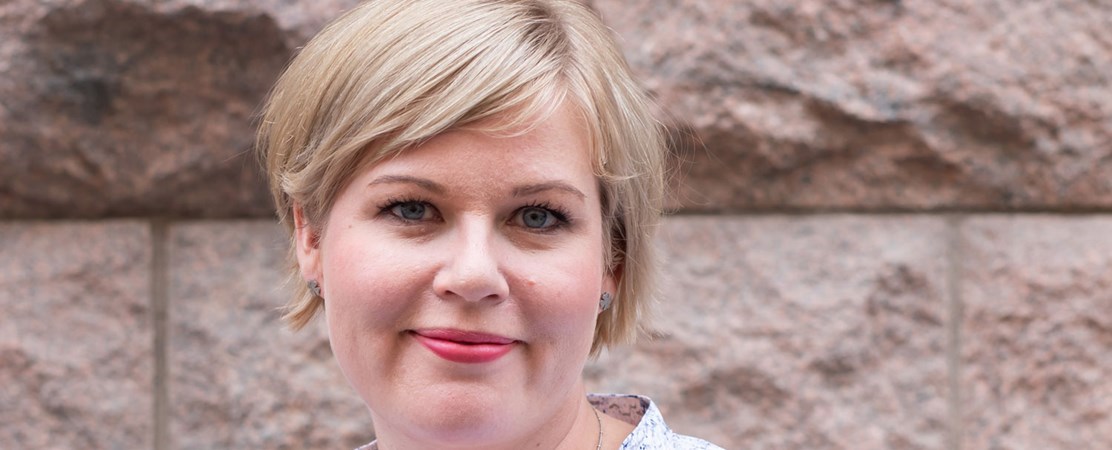UArctic – an Indispensable Arctic Actor

By Annika Saarikko, Minister of Science and Culture, Finland
Since its official launch in Rovaniemi in 2001, the University of the Arctic (UArctic) has been an important part of the Arctic cooperation in a range of fields, including education and research.
It is fair to say that UArctic is the main international forum for Arctic cooperation for the Finnish universities and universities of applied sciences. The University of Lapland, hosting the International Secretariat of UArctic, and the University of Oulu, hosting the Thematic Networks and Research Liaison Office of UArctic, carry considerable responsibilities. In addition, many other higher education institutions take actively part in UArctic’s Thematic Networks and activities.
Finland has made substantial investments in Arctic activities, notably in the form of intellectual capacity and infrastructure. This is, however, only natural for an Arctic country. Several administrative fields, starting from Ministries, are involved in resourcing of Arctic activities. Cooperation between parties has been excellent, and it has resulted in a lot of useful information on Arctic issues. A similar constructive approach to cooperate and share information applies to international, intergovernmental cooperation as well.
The Arctic Council, as the leading intergovernmental forum among the Arctic states and Arctic Indigenous peoples, promotes cooperation and coordination on Arctic issues. Activities of the Arctic Council are based on high-quality scientific research and globally recognized assessments regarding Arctic nature and human development. UArctic is intimately involved in this ongoing work. It is noteworthy that UArctic has been an official observer of the Arctic Council since 2002 and is a recognized collaborator in the Arctic Council’s work. UArctic is also a recognized partner by UNESCO, in particular through the 2018 establishment of a four-year UNITWIN Cooperation Programme between UNESCO and the UArctic Thematic Network on Teacher Education for Social Justice and Diversity in Education.
The importance of the United Nations’ Agenda 2030 and its Sustainable Development Goals (SDGs) in agenda setting is presently well recognized. While the SDGs are global in scope, they are adjustable to the sustainable development of the Circumpolar North. Finland’s new Arctic strategy, which will be published this spring, will also clearly highlight and thus strongly echo the Agenda 2030. UArctic, as a forerunner in sustainability issues, has for a few years brought the Agenda 2030 at the centre of meeting agendas and discussions, for example at the UArctic Congress 2018. Therefore, it seems obvious to me that this global and most current sustainability policy frame also fits well in UArctic, thanks to the network’s inherent alertness and timely activities.
With respect to UArctic’s alertness and activity in Arctic issues, I want to highlight the Arctic Science Ministerial meetings as well. UArctic has been an active and important player in the preparation of and carrying out the Ministerial meetings throughout the years. This concerns also the next Arctic Science Ministerial meeting that is planned to take place in Tokyo in May 2021.
UArctic has contributed in many ways to education, science, sustainability, and policy-making, and its active role in connecting researchers and policy-makers has been important. These are extremely important areas of international cooperation to advance. Another central aspect has been its ability to bring northern voices and knowledge into the larger discussion arenas. This not only increases understanding and respect towards the region, but it also contributes to the sustainability work. This immensely important outreach work is an area worth amplifying through UArctic’s cooperative network at large.
Finland highly values UArctic’s work and its impressive network of over 200 institutions in all Arctic countries and beyond. In my view, this is very much worth supporting also in the future. At Finland’s Ministry of Education, Science, and Culture, we are especially proud of our joint history and our merits in supporting UArctic since its very establishment in 2001.
We look forward to the UArctic Congress 2021 and other major future Arctic conferences and activities.
I wish UArctic a happy 20th anniversary and continued success for many more decades ahead!
